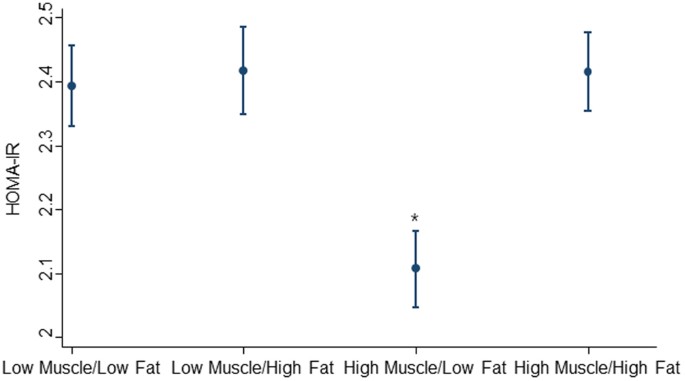North Coast Miller
Level 9 Valued Member
From everything I've read there are three factors that notably influence insulin sensitivity relative to exercise/body comp.
-Types of exercise that burn a lot of glucose increase sensitivity the most. They also induce a post exercise effect that shuttles glucose into muscle cells independent of insulin levels.
-high levels of body fat regardless of muscle mass contribute to insulin resistance, although a good bit of that seems tied to diet.
-Types of exercise that burn a lot of glucose increase sensitivity the most. They also induce a post exercise effect that shuttles glucose into muscle cells independent of insulin levels.
What is the Effect of HIIT on Insulin Resistance?
Data indicate that insulin sensitivity can be improved 23% to 58%. Study lengths vary from 2 weeks to 16 weeks for these adaptations to occur. The mechanism for this improvement appears to be well documented, with the ability of the exercising muscle contractions to stimulate the glucose shuttle transporters (known as GLUT4 translocaters) to take up glucose into the working muscle (from the blood), whether insulin is available or not (ADA, 2013).
-high levels of body fat regardless of muscle mass contribute to insulin resistance, although a good bit of that seems tied to diet.
-too much (?) saturated fat from animal sources increases insulin resistance, as does too much ingested fat in general. Several studies have been done that improved insulin sensitivity in obese subjects simply by reducing fat macros, without any change in body mass or fat:muscle. Similar effect was demonstrated by substituting animal fat/saturated with plant based/unsaturated, again with no change in body comp.
Association of muscle mass and fat mass with insulin resistance and the prevalence of metabolic syndrome in Korean adults: a cross-sectional study - Scientific Reports
Relationship of muscle mass and fat mass with insulin resistance and metabolic syndrome remains uncertain, especially among Asian population. We performed a cross-sectional study with 14,807 adult participants aged between 18 and 65 in the fourth and fifth Korea National Health and Nutrition...www.nature.com
Some studies have also improved insulin sensitivity using low carb approach. Also outlier research on small subset of extreme endurance athletes show impaired fasting glucose levels, but small subset and extreme metabolic adaptations in these individuals make me wonder if the observations are any more valid than the pre-diabetic glucose levels commonly found in keto adapted.

